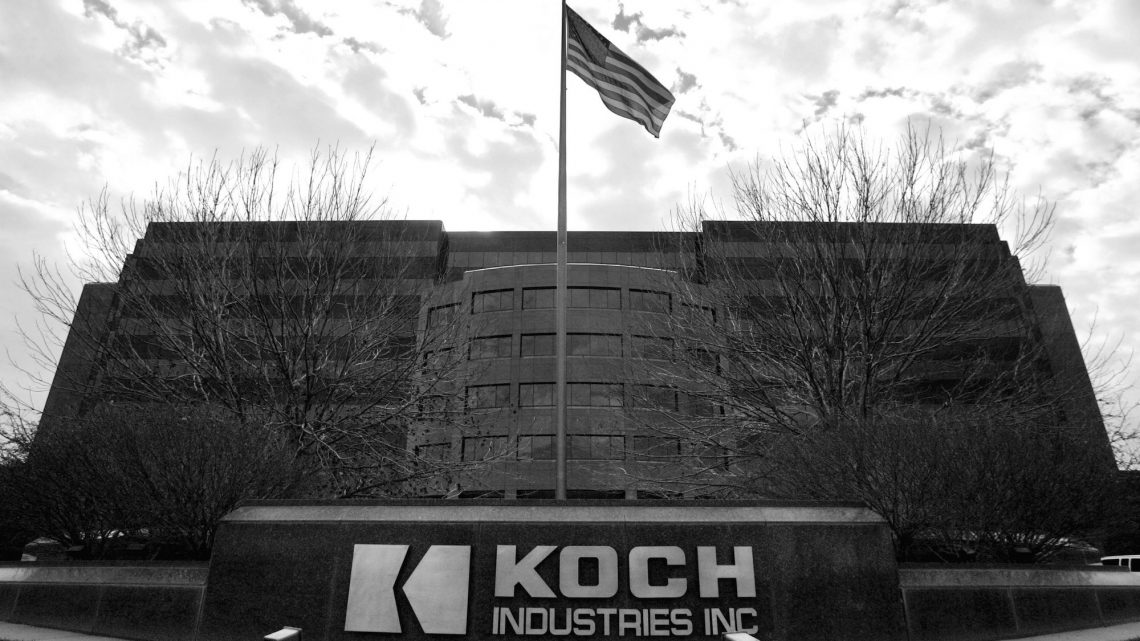
The Oil Industry Spent $31 Million to Kill a Climate Change Measure
November 8, 2018From the outside it doesn’t make a whole lot of sense. The state of Washington, about as environmentally progressive a place as there is in the US, rejected an ambitious plan to fight climate change Tuesday night. A ballot initiative known as 1631 would have pumped about $1 billion per year into non-climate-destroying investments, money that would have been raised by charging carbon producers $15 per ton, and increasing that tax by $2 a year. The plan was endorsed by labor unions, tribal nations, and low-income communities. It had billionaire backing from Michael Bloomberg and Bill Gates. Pearl Jam was stoked on it. But in the end, 1631 was defeated. Why?
As results came in Tuesday night suggesting 56 percent of Washington voters opposed the plan, I called up Nick Abraham, an organizer for the “Yes on 1631” campaign, who was at what was supposed to have been a celebration party in a Seattle hotel. “We’ve had happier nights over here,” he said. “What people should take away from this is that the oil industry bought this election… They pulled out every shady tactic and they spent the most money [on a ballot initiative] that Washington’s ever seen. I think that’s a testament to how scared they were.”
The “No on 1631” campaign was funded pretty much entirely by the oil industry. Nearly all of its $31 million budget—a record-setting amount for a campaign opposing a Washington ballot initiative—came from BP America, Phillips 66, Andeavor, Chevron USA, Koch Industries, and other companies and groups whose business model relies on releasing greenhouse gases into the atmosphere. “No” spokesperson Dana Bieber told me the campaign was “created from the grassroots up.” Yet it was sponsored by the Western States Petroleum Association. And spending documents show that companies such as BP (which gave nearly $13 million to No on 1631) got hundreds of their own workers to staff the campaign.
“I don’t think it should be any surprise that energy companies are supporting our campaign,” Bieber said when I asked her about oil industry involvement. “They have a stake in Washington. They employ tens of thousands of people across our state and contribute $100 million to our economy, they have a vested interest in this.”
They’re also highly exposed to legislation that puts a cost on carbon pollution. BP, Phillips, and Andeavor own oil refineries in Washington. Overall, the state’s refineries’ emissions could have become an $83 million per year liability under 1631. Beyond those immediate bottom-line concerns, support from out-of-state oil companies like Koch Industries also suggests that there were wider strategic considerations at play. “No jurisdiction anywhere has ever passed a carbon price at the ballot,” Kristin Eberhard, a senior researcher at the Sightline Institute, a Seattle-based sustainability think tank, told me. “Big oil really sees that if this can gain momentum among people… that could spread to other states. It could indicate that fossil fuels are on their way out faster than they think they are right now.”
“They’ve been allowed a free ride for their pollution and they don’t want it to end,” the climate change author and environmentalist Bill McKibben wrote in an email.
Fossil fuel money or not, 1631 was always going to be a tough sell. Two previous attempts to put a price on Washington’s carbon had already failed in recent years. Though this latest effort won the support of over 600 organizations and businesses by promising job-creating investments in low-carbon infrastructure, it still required voters to support a policy that would raise the cost of living in an already expensive region. The “No” side ran numerous ads claiming that the carbon price would impose $440 in gasoline and utility costs on people in the first year.
“Yes” proponents argued that the $440 estimate was intentionally inflated. Other estimates had put the annual cost to households closer to $100 or $300. Abraham said it was part of a broader pattern of bad-faith claims. In October, for instance, some Latino business owners said that they were included on a list opposing 1631—when in fact they supported it. “Fundamentally, the oil industry didn’t tell the truth about this,” he said. “They had to resort to misleading voters.”
Yet the opposition may have been targeting doubts about carbon pricing—and climate action more generally—that were already widespread. Several years ago, researchers at Yale and George Mason University found that a majority of people in Washington thought a warming atmosphere is dangerous, but doubted it would impact their lives directly.
“People are pessimistic about climate change but optimistic that it’s not going to affect us,” Eric Holthaus, a meteorologist and a contributor to the Seattle-based environmental outlet Grist, told me. (Holthaus has also written for VICE.) “That’s sort of the privilege of living in a rich country.” While more than 40 percent of Washington voters seemed to have rejected that outlook and supported 1631, “that clearly wasn’t enough to overcome the huge well-funded opposition by the fossil fuel industry,” he said.
The carbon pricing vote appeared to fit into a broader political dynamic. In elections across the US on Tuesday, progressive gains came mostly from densely populated and culturally diverse urban and suburban areas, while rural voters moved rightward. With nearly $15 million in backing from people like Bill Gates and former New York mayor Bloomberg, the “Yes” side only appears to have won majority victories in King County, which contains Seattle, and nearby Jefferson County. Every other county in the state seems to have voted against the climate plan.
In a larger sense, the vote was also a fight between competing worldviews in the Donald Trump era: an inclusive version of what the US could become versus a privileged status quo resistant to transformative change. “Most of those big oil companies are led by white male CEOs,” Aiko Schaefer, the director of a pro-1631 umbrella group known as Front and Centered, told me. “And our coalition is just extraordinarily diverse in terms of income level and racial identification.” She went on, “This isn’t just an environmental issue, it’s something that affects us all.”
In the aftermath of the vote there’s no clear path forward for proponents of action needed to avoid the deadliest impacts of climate change. With Donald Trump in the White House and Democrats only now controlling one chamber of Congress, the chances of ambitious climate legislation being passed during a rapidly shrinking time frame are slim. And the 1631 vote showed that aggressive action even in a progressive state can still fail.
Yet Abraham thinks the intensity of oil company opposition to 1631 shows how fearful the industry is becoming of alternatives. “We pushed them to the brink,” he explained. “Progressive campaigns like this can go toe to toe with them, we won’t win every ballot but we have to keep fighting because there’s too much at stake.”
Sign up for our newsletter to get the best of VICE delivered to your inbox daily.
Geoff Dembicki is the author of Are We Screwed? How a New Generation Is Fighting to Survive Climate Change . Follow him on Twitter.


